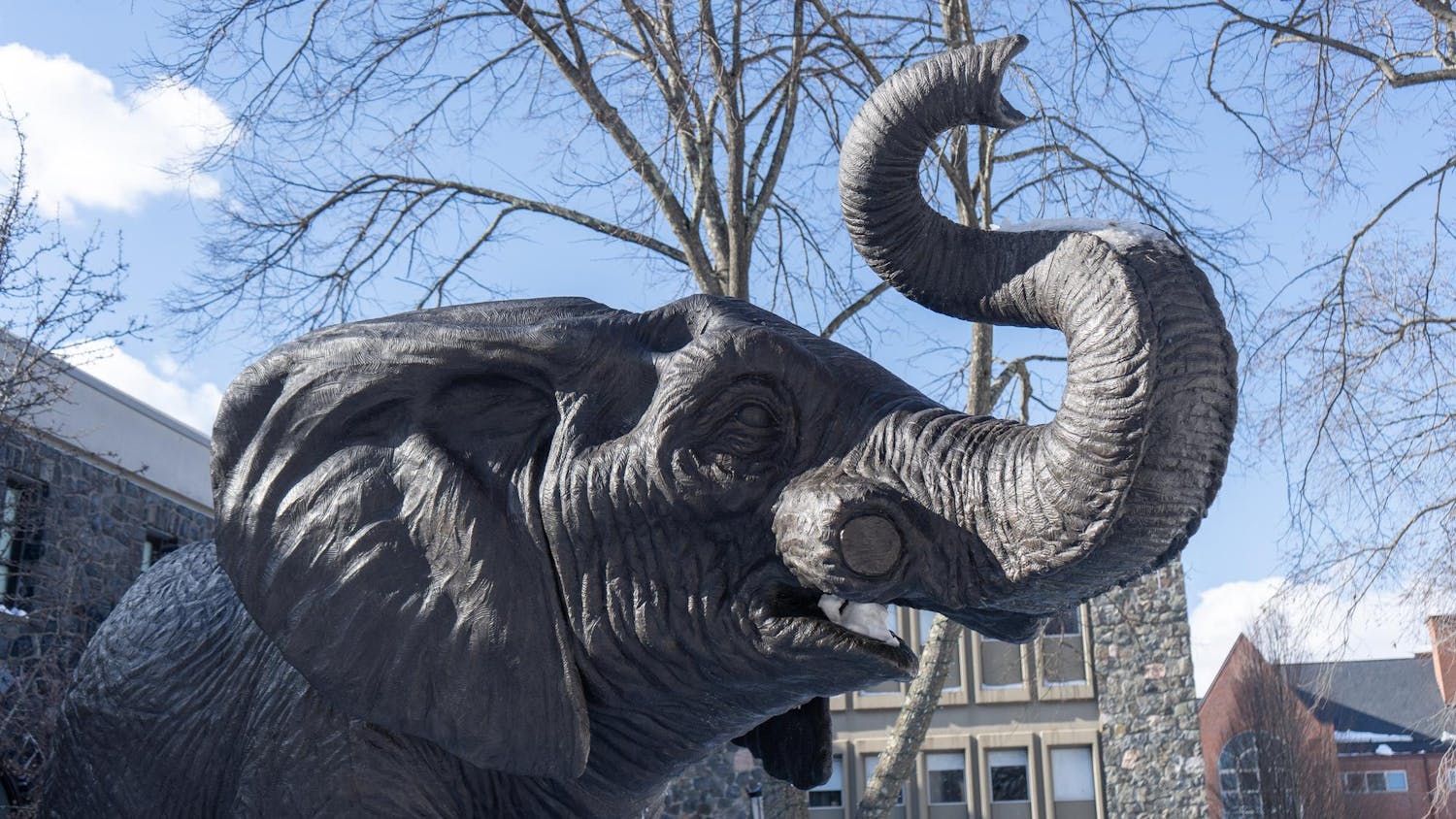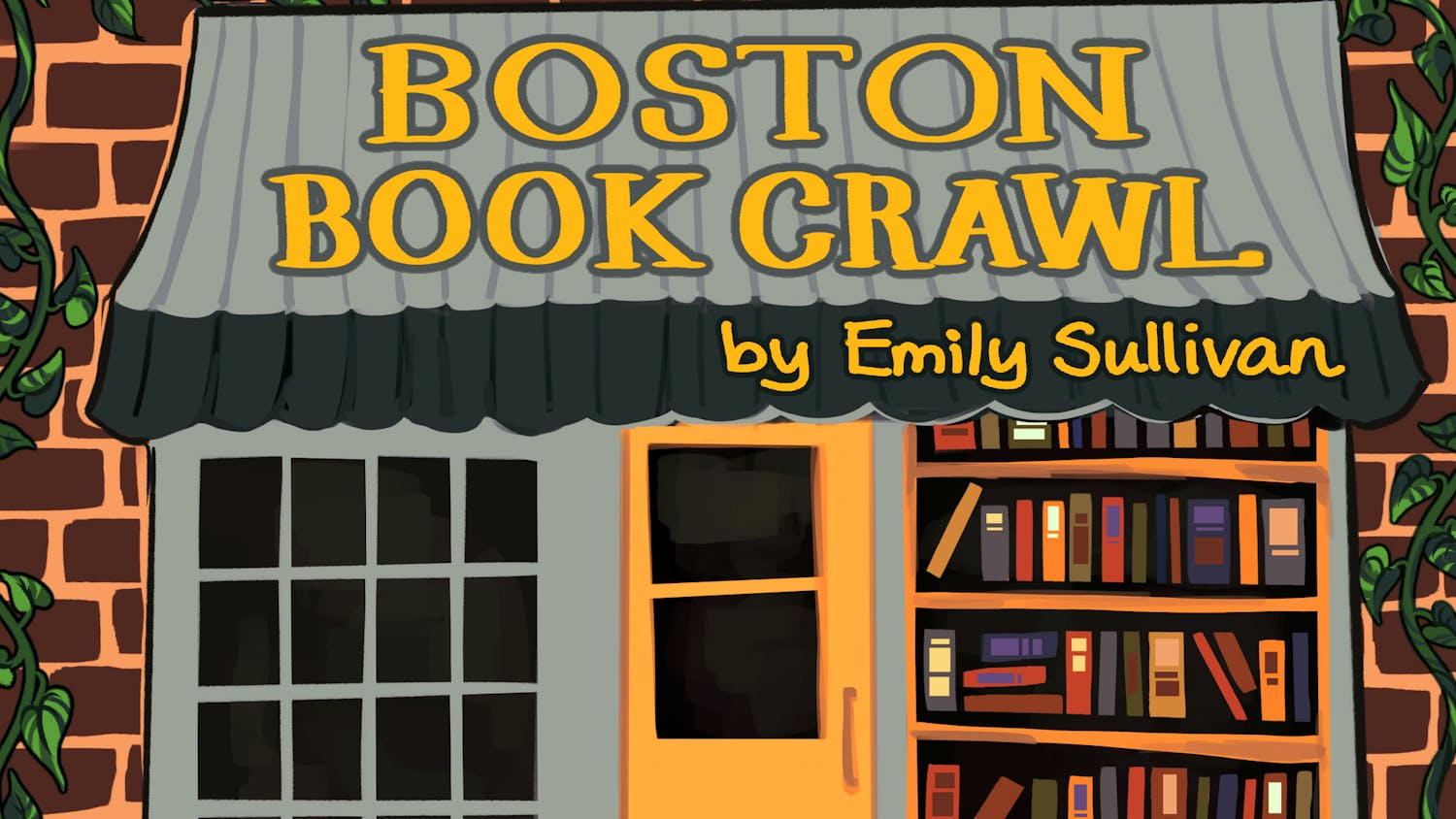Content warning: this article mentions sexual assault
High-profile cases and allegations have brought the issue of sexual assault to the forefront of the national media. But on college campuses, the issue of sexual assault is one that both on- and off-campus groups around Tufts have been tackling for decades.
Action for Sexual Assault Prevention (ASAP) at Tufts
There are a multitude of resources available within the Tufts community to students who are survivors of sexual assault. One group that advocates for raising awareness and education about the issue is ASAP.
Erin Viola, an executive board member of ASAP, explained the ways in which the group advocates for and supports survivors of sexual assault.
“The number one thing we do is prevention and awareness," Viola, a sophomore, said. "The second thing that we do is support for survivors. So we have a survivors space [four times] a month where we just create a space for survivors to come, do homework, talk, just be together and form a network of survivors to really strengthen the support that Tufts can have."
Viola also explained ASAP's annual "It Happens Here" event aims to empower the voices of sexual assault survivors.
“That’s a big event where survivors will anonymously submit narratives they write themselves and then they either read themselves or we assign volunteers to read their narratives," Viola said.
Bailey Siber, a senior and executive board member of ASAP, wrote in an email to the Daily that the group plans to expand the ways they engage with healing through art as well as bringing in an expert in mindfulness and grounding practices to teach coping strategies. Siber has been part of ASAP since her first year and described her desire to make the group more aware of the intersectionality of sexual violence.
"We are actively working on ways to make our group more focused on intersectionality," Siber wrote. "Sexual violence is enacted upon folks of all different identities. Centering all narratives, but especially those of people of color and LGBTQ+ folks, is incredibly important."
Viola described the ways that ASAP has teamed up with other organizations on and off campus.
“We have the support of the Women’s Center, the [University Chaplaincy], the LGBT Center, the Group of Six. We have a lot of support from all sorts of aspects of the administration, as well as the Office of Equal Opportunity,” Viola said.
ASAP also collaborates with the Boston Area Rape Crisis Center (BARCC). Founded in 1973, BARCC is the second oldest organization of its kind in the country. BARCC serves 29 cities and towns in the Boston region; its geographic reach also includes over 40 college campuses in the area.
On Oct. 29, BARCC co-led a workshop with ASAP about how to respond when someone discloses their survivor status or shares their experiences, according to Siber. Moving forward, ASAP hopes to engage in more collaborations to bring similar workshops within different communities, groups and spaces.
"We intentionally tried to gather a group of individuals that came from and are involved in different communities and organizations on campus, from Greek life to the Group of Six to pre-orientation groups," she said. "From the feedback we received, it was helpful to learn about concrete steps and have discussions with a diverse crowd."
Siber wrote that members of BARCC are working with ASAP to help with further collaborations.
Boston Area Rape Crisis Center (BARCC) and Tufts
BARCC Executive Director Gina Scaramella has been with the organization for over 20 years in a variety of capacities, including as a volunteer hotline counselor, a staff member and executive director for the last 14 years.
“Obviously I love the organization a lot, and I still am really pretty happy going to work most days, because I really just think the mission is incredible and the ability to both do service as well as do system change and policy change work really is exciting to me,” Scaramella said.
Scaramella explained that BARCC’s mission places them in direct interaction with sexual assault survivors of all ages. Scaramella elaborated that there are a number of free services available for sexual assault survivors who reach out to BARCC from meeting them at the hospital to the hotline, to legal advocacy to peace management and counseling services.
“Our mission is to end sexual violence through healing and social change. And what that means to us is that we provide direct services in a high volume to sexual assault survivors and their families who are ages 12 and older,” Scaramella said.
According to Scaramella, BARCC is actively speaking with residents, survivors and their families within Boston’s neighborhoods and communities to figure out how to improve their services.
“So whether that's an expansion of a program or a change to a system or an improvement. That’s our job; to listen and learn as we’re doing the things that we're doing directly with survivors as well as in the community and making things better for survivors as a result of that work,” Scaramella said.
BARCC also works with educational institutions in the greater Boston region. With the sheer number of college campuses in the area, each with its own needs and programs, Scaramella noted that BARCC works with and supports every school in a different way.
“Some schools are coming with a lot of internal resources and others are not. And so we tailor what we do as a campus to meet the needs," Scaramella said.
Scaramella gave a few examples of specific programs that BARCC has worked with colleges on.
"So for some campuses, we might provide support to services that they’re providing,” Scaramella said. “We might be a proxy answerer for their hotline over the weekend; we might provide clinical supervision to a staff person; we might do bystander training with them on their campus or help them with a policy.”
According to Scaramella, BARCC has worked with Tufts for a long time, and enjoys a symbiotic relationship with the university staff and administration.
“BARCC has actually has one of its most meaningful, longest standing relationships with Tufts of the campuses in the area. And that's largely because of some of the staff and faculty that you've had that have been real champions," Scaramella said.
An example of the close connection that Tufts and BARCC share is in staff member Peggy Barrett, who was the founding director of the Tufts Women's Center.
"Members of BARCC are helping us by sharing their resources and giving us advice and input as we create and facilitate workshops moving forward," Siber said.
Responses to #MeToo campaign
Further outside of Tufts and Boston, sexual assault has dominated media coverage in recent months. From the seemingly constant stream of allegations surfacing about Hollywood stars and high-profile politicians, to social media campaigns like #MeToo, there has been an increased awareness of sexual assault.
While this heightened recognition of sexual assault seems positive on the surface, there are complicated effects that a surge of awareness may bring. Viola expressed her mixed feelings on the #MeToo campaign.
“My thoughts on the #MeToo campaign are sort of complicated in that there's already a lot of pressure on survivors to just sort of out themselves to get people to care," Viola said. "And there’s also a lot of people out there who aren’t safe posting on social media."
Siber added to this sentiment, explaining that "outing" oneself as a survivor can lead to threats to a survivor's emotional, physical and spiritual well-being. Furthermore, Siber noted that such threats can be especially dangerous for survivors of color and LGBTQ+ survivors.
She illustrated this difference in those who are more likely to speak out during the #MeToo campaign and in the treatment of Lupita Nyong’o, a Kenyan-Mexican actress who is well-known for her role in 12 Years a Slave, who was one of over 40 women who accused Harvey Weinstein of sexual harassment, but the only woman whose allegations he has directly denied.
"A majority of the survivors that have disclosed their status or experiences have been optically white female," she said. "The only woman of color to speak up against Harvey Weinstein was also the only one to receive a response from Weinstein about how he had a 'different recollection' of what occurred. This, to me, does not seem like a coincidence."
Siber added that ASAP has been discussing the campaign and distributing information regarding it to the greater Tufts community.
"We are in the process of planning a response to the campaign and the cases that prompted it but want to make sure that what we do so in a way that is sensitive to the many complexities and voices that need to be recognized," she said.
Scaramella agreed with the concern surrounding the #MeToo campaign, but noted that the social media campaign caused additional recognition of sexual assault as a widespread problem, which people generally welcomed.
“I think most people feel generally positive about it that it's such a watershed moment where people are finally paying attention and realizing that just because you didn't see it or believe it doesn't mean it wasn’t happening. So people are feeling some sense or recognition that there wasn’t before,” Scaramella said.
However, Scaramella added that the intensity and volume of social media posts tagged with #MeToo can be overwhelming, to a point where people who are affected have no space to retreat away from these posts.
“[People feel] overwhelmed and like they need a break. They can’t be on a break because let’s say they want to look their Facebook feed, that’s not a good idea; listen to the radio, that’s not a good idea. So it feels like there are not a lot of places of peace,” Scaramella said.
BARCC has seen an increase in demand for its services in the midst of the media’s recent focus on sexual assault cases. They have had to repurpose other spaces within their offices into counseling rooms and hire more staff, according to Scaramella.
“It has actually affected us significantly in terms of demands on services," Scaramella said. "So we had already been experiencing a pretty heavy demand on services, since that time we've been on an extreme upward trajectory and have continued to see that and really have seen a huge spike since the fall.”
Scaramella pledged that BARCC will not compromise on its service quality, despite the unexpected surge.
“So we're really having to do a lot to try to make sure that when people have the courage and feel like it's the right time for them to reach out that they get the high quality response we strive for,” Scaramella said.





